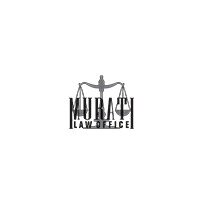Best Trusts Lawyers in Ulcinj
Share your needs with us, get contacted by law firms.
Free. Takes 2 min.
List of the best lawyers in Ulcinj, Montenegro
About Trusts Law in Ulcinj, Montenegro
Trusts in Ulcinj, Montenegro, are agreements in which one party transfers property to another party to hold for the benefit of a third party. This legal arrangement facilitates the management and protection of assets, ensuring that the property is utilized according to the wishes of its owner. Although Montenegro is influenced by civil law traditions, trust laws in Ulcinj and other parts of the country are also evolving to accommodate concepts found in common law jurisdictions.
Why You May Need a Lawyer
Engaging a lawyer experienced in trusts may be crucial in various situations. For instance, if you intend to set up an estate plan ensuring smooth asset distribution to beneficiaries, or if you wish to protect your assets from claims by creditors, legal advice can help you establish a trust that meets your needs. Furthermore, if you are a beneficiary or trustee and need guidance on your rights or responsibilities, professional legal counsel can offer clarity and aid compliance with relevant laws.
Local Laws Overview
Montenegrin law incorporates civil law principles with legislation specifically addressing the regulation of trusts. Key aspects include the recognition of different types of trusts (e.g., revocable and irrevocable trusts), the fiduciary duties of trustees, and the rights of beneficiaries. It's also important for trust arrangements to adhere to tax regulations and property law in Montenegro. Local courts in Ulcinj have the authority to interpret these laws, making it essential for trust-related documents to be well-drafted.
Frequently Asked Questions
What is a trust?
A trust is a legal arrangement where one party holds property for the benefit of another, ensuring the property is managed according to the owner’s intentions.
Can anyone create a trust in Ulcinj?
Yes, generally, individuals with legal capacity can create a trust, provided the arrangement meets legal requirements and purpose is lawful.
What parties are involved in a trust?
Typically, a trust involves a settlor (the one who creates it), a trustee (who manages it), and one or more beneficiaries (who benefit from it).
Do trusts in Ulcinj need to be registered?
Not all types of trusts may require registration, but it is important to consult with a legal expert to ensure compliance with applicable laws.
Are foreign trusts recognized in Montenegro?
Montenegro recognizes foreign trusts to some extent, although subject to local legal constraints. Consulting a lawyer is advisable for clarity.
How can a trust protect my assets?
Trusts can safeguard assets from creditors, ensure privacy, and aid in controlling how assets are distributed, subject to legal limitations.
Can a trust be changed or revoked?
This depends on the type of trust. Revocable trusts can generally be altered, whereas irrevocable trusts are more difficult to change without agreement from all parties.
What tax implications should be considered?
Trusts can have tax consequences for all parties involved, and it's vital to seek advice on potential income, estate, or other tax implications.
How long does it take to set up a trust?
The time involved varies depending on the complexity and specific requirements. Working with a lawyer can streamline the process.
What are a trustee's responsibilities?
A trustee manages the trust’s assets responsibly and in accordance with the trust document and must act in the best interest of the beneficiaries.
Additional Resources
For those seeking more information, consider consulting the Montenegrin Bar Association, local legal aid organizations, or speaking with financial advisers experienced in trust management. Government agencies handling property and taxation can also offer useful insights.
Next Steps
If you are considering setting up a trust or require assistance with an existing trust, it's advisable to consult a lawyer specializing in trusts and estates. Prepare a list of your specific goals and any pertinent documents before your consultation to maximize the efficiency and relevance of legal advice. Ensuring legal compliance and understanding all aspects of the trust arrangement are vital steps in the process.
Lawzana helps you find the best lawyers and law firms in Ulcinj through a curated and pre-screened list of qualified legal professionals. Our platform offers rankings and detailed profiles of attorneys and law firms, allowing you to compare based on practice areas, including Trusts, experience, and client feedback.
Each profile includes a description of the firm's areas of practice, client reviews, team members and partners, year of establishment, spoken languages, office locations, contact information, social media presence, and any published articles or resources. Most firms on our platform speak English and are experienced in both local and international legal matters.
Get a quote from top-rated law firms in Ulcinj, Montenegro — quickly, securely, and without unnecessary hassle.
Disclaimer:
The information provided on this page is for general informational purposes only and does not constitute legal advice. While we strive to ensure the accuracy and relevance of the content, legal information may change over time, and interpretations of the law can vary. You should always consult with a qualified legal professional for advice specific to your situation.
We disclaim all liability for actions taken or not taken based on the content of this page. If you believe any information is incorrect or outdated, please contact us, and we will review and update it where appropriate.








